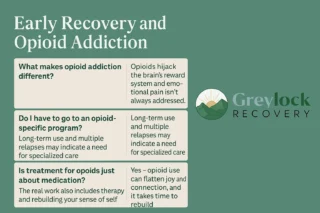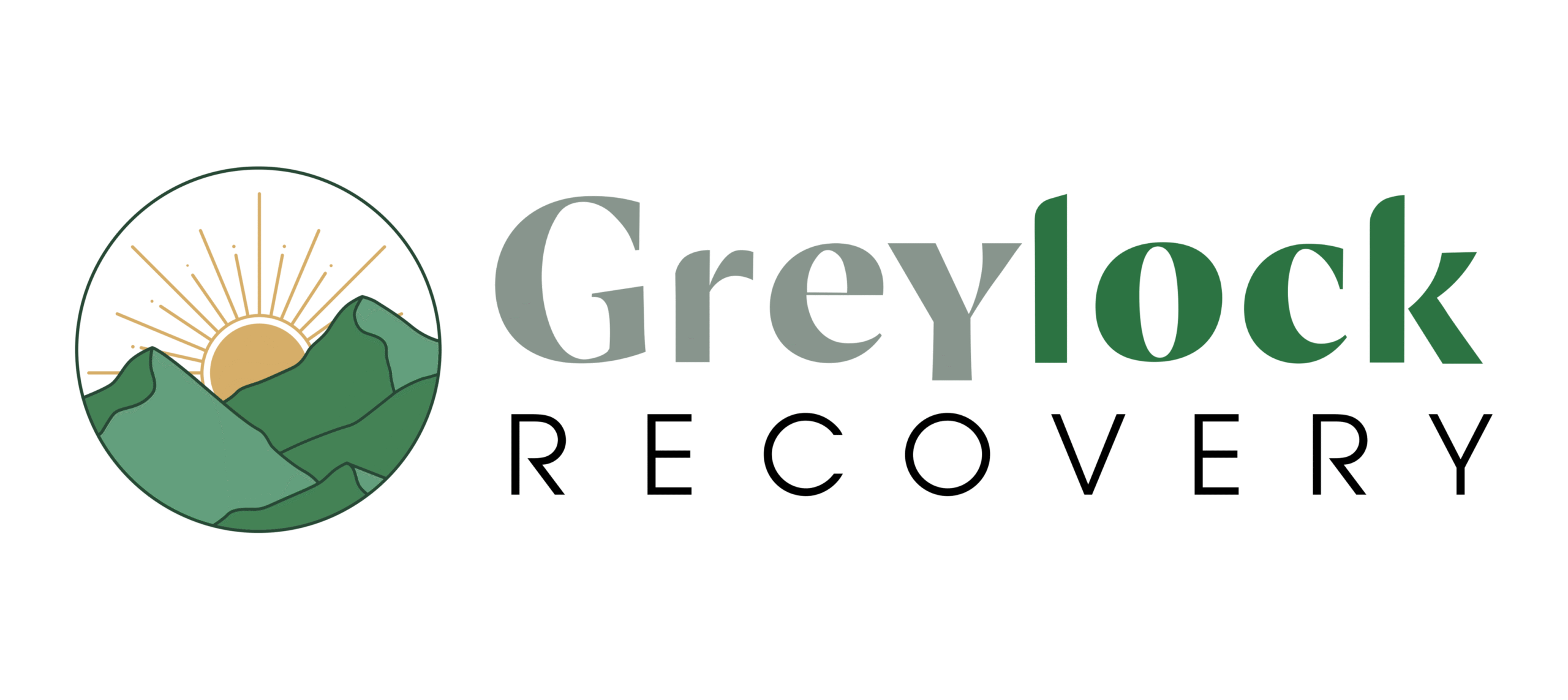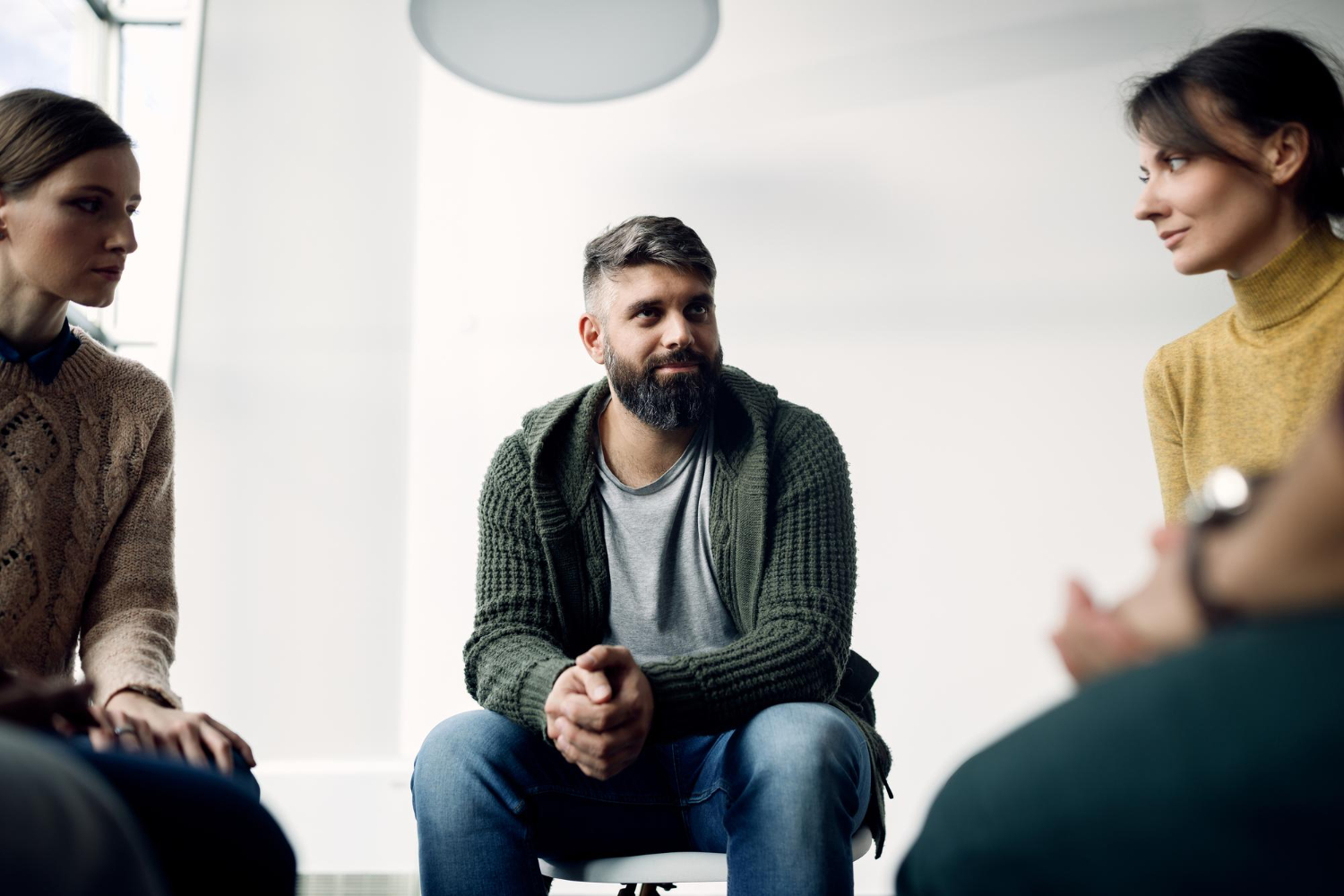When you’re in early recovery, even basic questions can feel overwhelming. Your body is tired, your mind’s still catching up, and your emotions—if you’re honest—are all over the place. There’s a rawness to this stage that few people talk about. You’re here, trying. You’ve stopped using. Maybe. Or maybe you’re about to. But it’s lonely. It’s fragile. And you’re wondering: Is opioid addiction treatment different from other kinds of treatment? Do I need something specific for this kind of pain?
The short answer is yes. But not because you’re more broken. Because opioid use disorder affects the brain, body, and spirit in very specific—and often deeply isolating—ways. And the kind of support that helps people begin to heal needs to reflect that.
At Greylock Recovery in Williamstown, Massachusetts, we provide specialized opioid addiction treatment that meets you where you are: uncertain, aching, maybe a little scared… but still here. And still worthy of care.
What Makes Opioid Addiction Different?
Let’s start here—because it matters. Opioids hijack the brain’s reward system in a way that’s uniquely powerful. These drugs don’t just “feel good.” They replace pain with relief. They hush the noise. They offer—at first—a kind of peace. That’s why opioid use can slip so quickly from occasional to essential. And why stopping can feel like losing the only thing that ever worked.
But here’s the truth: that peace wasn’t real. Not sustainable. And you know that—because it stopped working long ago.
What makes opioid addiction different is not just the chemical grip. It’s the emotional pain underneath, and the way opioids rewired your nervous system to survive. Recovery has to address both. That’s what a dedicated opioid treatment program does—it sees the whole picture.
Do I Have To Go to an Opioid-Specific Program?
No. But here’s when it helps.
If you’re dealing with:
- Long-term heroin or fentanyl use
- Multiple relapses after short-term detox
- Fear of withdrawal keeping you from trying again
- Medication-assisted treatment confusion
- Shame that feels louder than your craving
…then a program that specializes in opioid addiction isn’t just a good fit. It’s often a lifeline.
That doesn’t mean other types of treatment won’t help. But opioid-focused programs are built to understand the way this specific addiction shows up in your body and your story. They make room for the loneliness. The lost time. The way opioid use turns the world silent, and how strange it feels when the silence lifts.
Is Treatment for Opioids Just About Medication?
This is a common fear. Some people think opioid treatment = a prescription and a handshake.
And yes—medications like Suboxone, Methadone, or Vivitrol can be incredibly helpful. They reduce withdrawal symptoms. They stabilize the brain. They quiet the chaos enough to let you think clearly again. For many, that’s a huge relief.
But the real work? That happens beyond the meds.
Real opioid addiction treatment includes:
- Therapy that honors your grief, not just your behaviors
- Group support that connects you with others who get it
- Trauma-informed care that recognizes what you’ve lived through
- Skills building for boundaries, triggers, and real-life stress
- Gentle re-engagement with joy, creativity, purpose
At Greylock, we believe medication is a doorway—not the whole path. We walk with you through what comes next: rebuilding a sense of self you can actually live with.
What If I Feel Judged?
This question lives in the bones of many people with opioid use disorder.
It sounds like:
- “They’ll think I’m disgusting.”
- “They don’t know what I’ve done.”
- “I don’t belong with the others—they didn’t use like me.”
And here’s what we need you to know: you do belong.
Not despite what you’ve been through—but because of it.
Many people using opioids have crossed lines they never thought they would. That’s not shameful. That’s how addiction works. And it is not a reflection of your worth or your capacity to heal.
At Greylock, we don’t judge how far it went. We honor the fact that you made it here. That you’re reading this. That something in you still hopes.
Because underneath all the hurt, there’s still you. And you deserve care that sees past the label and listens to the pain.

What Does Early Recovery Feel Like?
It feels weird. There’s no other word for it.
Early recovery—especially from opioids—can feel like walking barefoot across unfamiliar ground. Everything is tender. People talk about joy and gratitude, but right now? It might just feel like an endless Tuesday.
You might be:
- Exhausted but unable to sleep
- Surrounded but still lonely
- Clear-headed but emotionally confused
- Proud one minute and ashamed the next
And all of that is okay.
Recovery isn’t linear. And it isn’t always bright. Sometimes, the bravest thing you do today is get through the hour without using. Sometimes it’s just making it to group. Or brushing your teeth. Or letting someone see the real you for a second longer than feels safe.
That’s progress. Even if no one claps for it.
Is It Normal to Still Feel Empty?
Yes. And we want to say this clearly: you’re not broken. You’re just healing.
Opioid use dulls more than pain—it flattens joy, numbs connection, and shrinks your emotional range. So when the drugs are gone, it’s not uncommon to feel… nothing. Or too much. Or both.
This doesn’t mean you’re doing it wrong.
It means your nervous system is coming back online. Your heart is remembering how to beat without the buffer. That’s hard. And lonely. But it’s not permanent.
In treatment, you start to build small bridges back to yourself. Not all at once. Not perfectly. But slowly. Through real connection. Safe space. Gentle structure. Familiar voices that remind you: this gets easier.
What Does Opioid Addiction Treatment Look Like at Greylock?
In Williamstown, MA, we offer outpatient opioid addiction treatment that respects your pace. Some people come to us after detox. Others arrive still unsure if they’re “ready.” Both are welcome.
Our program includes:
- Individual therapy tailored to opioid recovery
- Group counseling with others who understand opioid use
- Support for MAT (medication-assisted treatment) if desired
- Life skills, emotional regulation, and relapse prevention
- A team that listens more than it lectures
We’re not here to fix you. We’re here to support your healing in a way that feels real, not rushed. That includes honoring your story, your silence, and your right to start over without shame.
Is There Hope for Me?
Yes. Even if you’ve tried before. Even if it didn’t stick. Even if you’re not sure you want this—but you know you can’t keep going like this.
Hope doesn’t always show up as fireworks or breakthroughs.
Sometimes, hope is the ride that gets you to therapy. The text you send that says “I think I need help.” The moment you read a sentence and feel like someone finally sees you.
Hope is quiet. But it’s here.
And at Greylock, we’re here to hold it with you—until it feels like yours again.
Ready to feel less alone?
Call us at (413) 848-6013 or visit Greylock Recovery’s opioid addiction treatment in Williamstown, Massachusetts to learn more. Whether you’re one day sober or still deciding, there’s a place for you here. We’ll meet you gently, right where you are.


